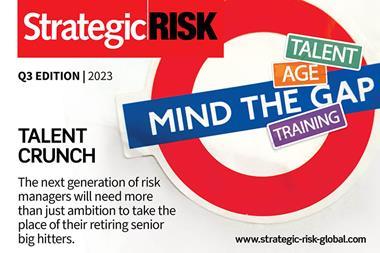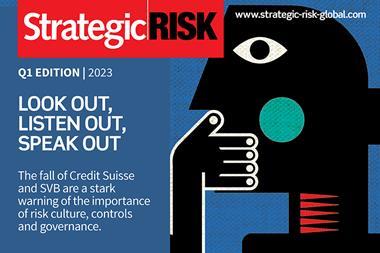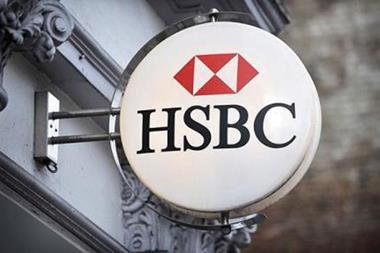Inflation, financial market volatility, a looming recession and the energy crisis are top risers for 2023
It is both stability and change in the Allianz Risk Barometer 2023. Cyber incidents and Business interruption rank as the biggest company concerns for the second year in succession (both with 34% of all responses).
However, it is Macroeconomic developments such as inflation, financial market volatility and a looming recession (up from #10 to #3 year-on-year), as well as the impact of the Energy crisis (a new entry at #4) which are the top risers in this year’s list of global business risks, as the economic and political consequences of the world in the aftermath of Covid-19 and the Ukraine war take hold.
Current crises trump longer-term risks
Such pressing concerns call for immediate action from companies, explaining why both Natural catastrophes (from #3 to #6) and Climate change (#6 to #7) drop in the annual rankings, as does Pandemic outbreak (from #4 to #13) as vaccines have brought an end to lockdowns and restrictions.
Political risks and violence is another new entry in the top 10 global risks at #10, while shortage of skilled workforce rises to #8. Changes in legislation and regulation remains a key risk at #5, while fire/explosion drops two positions to #9.
Despite these changes, AGCS’ CEO Joachim Mueller noted that cyber risk and business interruption maintained the top two positions in the risk survey, reflecting very real concern from businesses.
“Companies – in Europe and in the US in particular – worry about the current ‘permacrisis’ resulting from the consequences of the pandemic and the economic and political impact from ongoing war in Ukraine,” he added. “It’s a stress test for every company’s resilience.
“The positive news is that as an insurer we see continuous improvement in this area among many of our clients, particularly around making supply chains more failure-proof, improving business continuity planning and strengthening cyber controls.
”Taking action to build resilience and de-risk is now front and center for companies, given the events of recent years.”
Digital dangers
Cyber incidents ranks as the top peril in 19 different countries, among them Canada, France, Japan, India and the UK. It is the risk that small companies (<$250mn annual revenue) are most worried about.
According to the Allianz Cyber Center of Competence, the frequency of ransomware attacks remains elevated in 2023, while the average cost of a data breach is at an all-time high at $4.35m and expected to surpass $5m in 2023.
The conflict in Ukraine and wider geopolitical tensions are heightening the risk of a large-scale cyber-attack by state-sponsored actors. In addition, there is also a growing shortage of cyber security professionals, which brings challenges when it comes to improving security.
For businesses in many countries, 2023 is likely to be another year of heightened risks for Business interruption (BI) because many business models are vulnerable to sudden shocks and change, which in turn impact profits and revenues.
Ranking #2 globally, BI is the number one risk in countries such as Brazil, Germany, Mexico, Netherlands, Singapore, South Korea, Sweden and the US.
Disruption from cyber, energy crisis and extreme weather
The scope of disruptive sources is wide. Cyber is the cause of BI companies fear most (45% of responses); the second most important cause is the energy crisis (35%), followed by natural catastrophes (31%).
The skyrocketing cost of energy has forced some energy-intensive industries to use energy more efficiently, move production to alternative locations or even consider temporary shutdowns.
The resulting shortages threaten to cause supply disruption across a number of critical industries in Europe, including food, agriculture, chemicals, pharmaceuticals, construction and manufacturing, although warm winter conditions in Europe and stabilisation of the price of gas is helping to ease the energy situation.
A possible global recession is another likely source of disruption in 2023, with potential for supplier failure and insolvency, which is a particular concern for companies with single or limited critical suppliers.
Macroeconomic malaise
Macroeconomic developments such as inflation or economic and financial market volatility rank as the third top risk for companies globally in 2023 (25%), up from #10 in 2022 – the first time this risk has appeared in the top three for a decade.
All three major economic areas – the United States (US), China and Europe – are in a crisis mode at the same time, albeit for different reasons, according to Allianz Research, which forecasts recession in Europe and the US in 2023.
Inflation is a particular concern as it is ‘eating’ into the price structure and profitability margins of many companies.
Like the real economy, the financial markets are facing a difficult year, as central banks drain excess system-wide liquidity and trading volumes even in historically liquid markets decline.
“2023 will be a challenging year; in purely economic terms, it is likely to be a year to forget for many households and companies. Nevertheless, there is no reason to despair,” says Ludovic Subran, chief economist at Allianz.
“For one thing, the turnaround in interest rates is helping, not least for millions of savers. The medium-term outlook is also much brighter, despite – or rather because of – the energy crisis.
”The consequences, beyond the expected recession in 2023, are already becoming clear: a forced transformation of the economy in the direction of decarbonisation as well as increased risk awareness in all parts of society, strengthening social and economic resilience.”
Risers and fallers
The Energy crisis is the biggest risk riser in the Allianz Risk Barometer appearing for the first time at #4 (22%). Some industries, such as chemicals, fertilisers, glass, and aluminum manufacturing, can be reliant on a single source of energy – Russian gas in the case of many European countries – and are therefore vulnerable to disruption to energy supply or price increases.
If such base industries struggle, repercussions can be felt further down the value chain in other sectors. According to Allianz Trade, the energy crisis will remain the largest profitability shock for European countries in particular.
Despite dropping in the ranking year-on-year, Natural catastrophes (19%) and Climate change (17%) remain major concerns for businesses.
In a year that included Hurricane Ian, one of the most powerful storms recorded in the US, record-breaking heatwaves, droughts and winter storms around the world, and $100bn+ of insured losses, they still rank in the top seven global risks.
The Allianz Risk Barometer is an annual business risk ranking compiled by Allianz Group’s corporate insurer Allianz Global Corporate & Specialty (AGCS), together with other Allianz entities.
It incorporates the view of 2,712 risk management experts in 94 countries and territories including CEOs, risk managers, brokers and insurance experts. It is being published for the 12th time.




















No comments yet